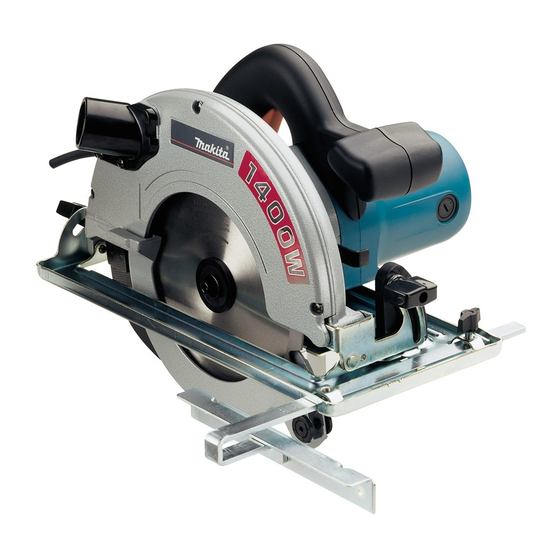is restarted.
Support large panels to minimise the risk
•
of blade pinching and kickback. Large
panels tend to sag under their own weight.
Supports must be placed under the panel on
both sides, near the line of cut and near the
edge of the panel.
To minimize the risk of blade pinching and kickback.
When cutting operation requires the resting of the
saw on the workpiece, the saw should be rested on
the larger portion and the smaller piece cut off.
To avoid kickback, do support
board or panel near the cut.
000154
Do not support board or
panel away from the cut.
000156
Do not use dull or damaged blades.
•
Unsharpened
produce narrow kerf causing excessive friction,
blade binding and kickback. Keep blade sharp
and clean. Gum and wood pitch hardened on
blades slows saw and increases potential for
kickback. Keep blade clean by first removing it
from tool, then cleaning it with gum and pitch
remover, hot water or kerosene. Never use
gasoline.
Blade depth and bevel adjusting locking
•
levers must be tight and secure before
making cut. If blade adjustment shifts while
cutting, it may cause binding and kickback.
Use extra caution when making a "plunge
•
or
improperly
set
cut" into existing walls or other blind areas.
The protruding blade may cut objects that can
cause kickback. For plunge cuts, retract lower
guard using retracting handle.
ALWAYS hold the tool firmly with both
•
hands. NEVER place your hand or fingers
behind the saw. If kickback occurs, the saw
could easily jump backwards over your hand,
leading to serious personal injury.
000194
Never force the saw. Forcing the saw can
•
cause uneven cuts, loss of accuracy, and
possible kickback. Push the saw forward at
a speed so that the blade cuts without slowing.
10. Check lower guard for proper closing before
each use. Do not operate the saw if lower
guard does not move freely and close instantly.
Never clamp or tie the lower guard into the
open position. If saw is accidentally dropped,
lower guard may be bent. Raise the lower guard
with the retracting handle and make sure it moves
freely and does not touch the blade or any other
part, in all angles and depths of cut.
To check lower guard, open lower guard by hand,
then release and watch guard closure. Also check
to see that retracting handle does not touch tool
housing. Leaving blade exposed is VERY
DANGEROUS and can lead to serious personal
blades
injury.
11.
Check the operation of the lower guard spring.
If the guard and the spring are not operating
properly, they must be serviced before use.
Lower guard may operate sluggishly due to
damaged parts, gummy deposits, or a build-up of
debris.
12. Lower guard should be retracted manually
only for special cuts such as "plunge cuts"
and "compound cuts." Raise lower guard by
retracting handle and as soon as blade enters
the material, the lower guard must be released.
For all other sawing, the lower guard should
6

